- NSCC Singapore
- Press Room
Press Room
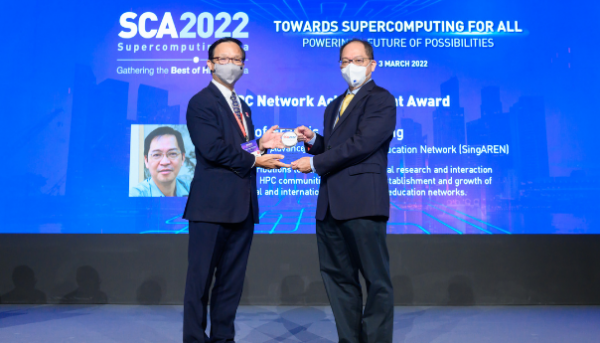
SupercomputingAsia 2022 (SCA22) conference announces annual SCA Awards and winners of the Data Mover Challenge 2021
March 2, 2022The SupercomputingAsia Conference recognised key HPC pioneer-leaders with its annual SCA22 Awards. The winning teams from Asia, Australia and the US were also announced at the awards ceremony for the international Data Mover Challenge 2021 (DMC21) competition. Find out more in the Media Release.
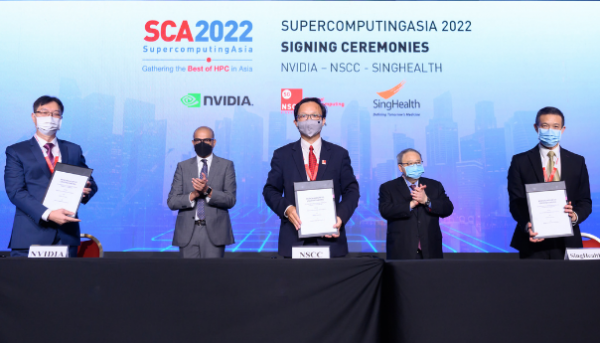
New public-private partnership in supercomputing to support advanced healthcare research, and more, in Singapore
March 1, 2022NSCC, SingHealth and NVIDIA have collaborated to develop a research ecosystem of hardware and software tools to support healthcare and medical research at Singapore’s largest public healthcare cluster. These include a new supercomputer and access to advanced software, training and high-performance computing (HPC)-enabled pre-trained AI models to significantly accelerate large-scale and complex healthcare research. The collaborations were signed at the Opening Ceremony of the annual international SupercomputingAsia 2022 (SCA22) conference and reflects the theme of the SupercomputingAsia 2022 (SCA22) conference, “Towards Supercomputing for All”, which highlights the growing ubiquity of advanced supercomputing resources in an increasing number of fields. Find out more in the Media Release.
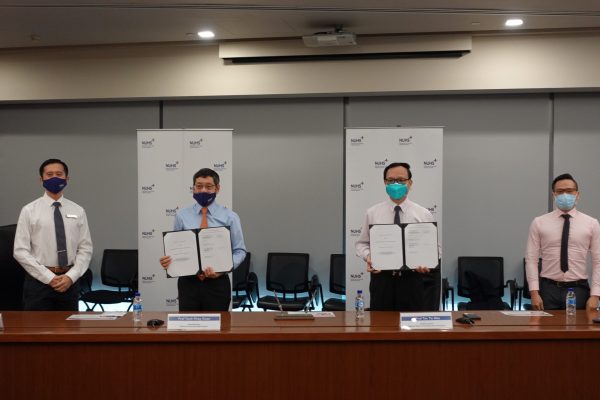
National AI Healthcare Initiatives get boost from RIE funding with new national supercomputer resource built and sited at NUHS
December 3, 2021National Supercomputing Centre Singapore (NSCC) and National University Health System (NUHS) inked a collaborative agreement to build a petascale national supercomputing resource that will serve Singapore’s medical and healthcare research needs by middle of next year. The five-year Research, Innovation and Enterprise 2020 (RIE2020) plan had allocated funds for research and development (R&D) in three high impact areas, including healthcare. Collaborating to provide the infrastructure and operational components respectively, the new system by NSCC and NUHS will benefit clinical researchers who will be able to train and run complex computations of healthcare models. This supercomputing infrastructure, named “PRESCIENCE”, is used to train AI models that predict patient health trajectories and recommends when a patient’s condition may deteriorate. Find out more in the Media Release.
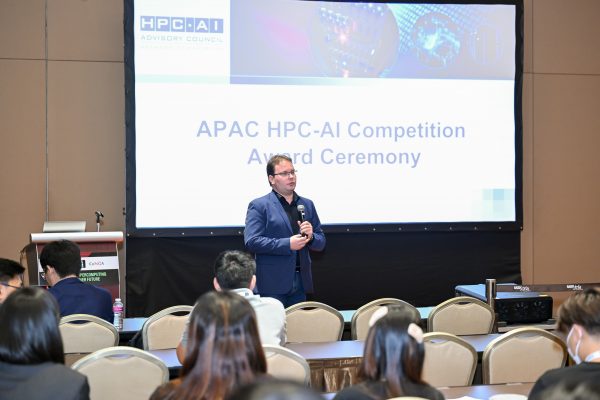
HPC-AI Advisory Council Announces the Winners of the 4th APAC HPC-AI Competition
November 19, 2021The HPC-AI Advisory Council (HPCAIAC) and National Supercomputing Centre (NSCC) Singapore today announced the university team winners of its annual HPC-AI challenge, the 4th APAC HPC-AI Competition. The annual APAC HPC-AI competition’s mission is to bridge the gap between high-performance computing (HPC) and AI use, and its application potential as part of talent development for participants from universities and research centers. This year’s competition consisted of 36 teams from 13 countries and regions in APAC. With the continued support of NSCC Singapore, student competitors were provided with hands-on access to the Singapore-based advanced supercomputing resources. Teams were challenged with mastering one HPC task (GROMACS) and one AI task (DLRM), the same complex HPC and AI workloads that are integral to today’s major applications. Find out more in the Media Release.
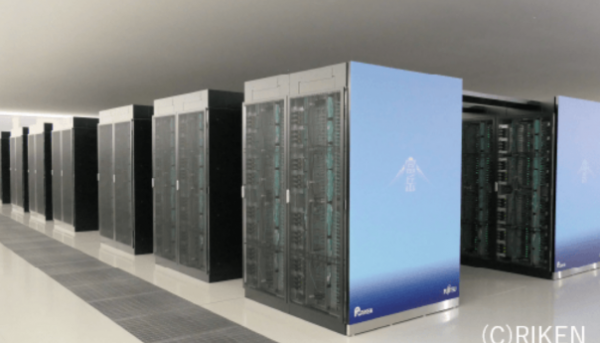
Singapore researchers granted regular access to reigning world’s top supercomputer in first-of-its-kind arrangement with Japan
November 19, 2021A new agreement between Japan’s Research Organization for Information Science and Technology (RIST) and National Supercomputing Centre (NSCC) Singapore opens the path for Singapore researchers to regularly access and request for supercomputing resources from the world’s most powerful supercomputer, Japan’s Fugaku system. In the first such arrangement of its kind outside of Japan, Singapore researchers can now apply for available resources through an annual Call for Projects to Fugaku, which will be coordinated by NSCC and RIST. The agreement which was signed between RIST and NSCC is a milestone for both organisations. The agreement builds on an earlier Memorandum of Understanding on Information Exchange Concerning Promotion of Supercomputer Utilization between RIST and NSCC. Find out more in the Media Release.

HPC-AI Advisory Council and ISC Group Announce Winners of 10th Annual ISC Student Cluster Competition
July 9, 2021The HPC-AI Advisory Council (HPCAIAC) in collaboration with the ISC Group revealed the top performers in the 10th annual ISC Student Cluster Competition. Remaining an all remote competition for a second year, the annual global competition culminated with an award ceremony broadcast as part of the virtual ISC High Performance conference proceedings this week. Aligned with the ISC High Performance conference digital-delivery, organizers rebooted the second year of the all remote SCC, garnering added support from Canada’s University of Toronto, SciNet Supercomputing Centre with the ongoing support of the National Supercomputing Centre (NSCC) Singapore. The prestigious institutions provided generous allocations of supercomputer system time to the teams on their highly utilized and in-demand production resources. Find out more in the Press Release.

Singapore developing its own ‘crystal ball’ for better climate projections
June 7, 2021The effects of planetary warming are clear. Global temperatures and sea levels are rising, certain extreme weather events could intensify, and rainfall patterns could become more erratic. But at a finer resolution, many questions remain about how these changes would manifest in Singapore and South-east Asia. For instance, how fast would sea levels rise around the city-state, and how high could the waters go? If rainfall patterns change, would the country experience more droughts or flash floods? These are questions that scientists at the Centre for Climate Research Singapore (CCRS) – a division under the National Environment Agency’s Meteorological Service Singapore – are looking into. CCRS is working with the National Supercomputing Centre to downscale these models to produce grid cells spanning from about 2km to 8km. Find out more about their work in this News Article
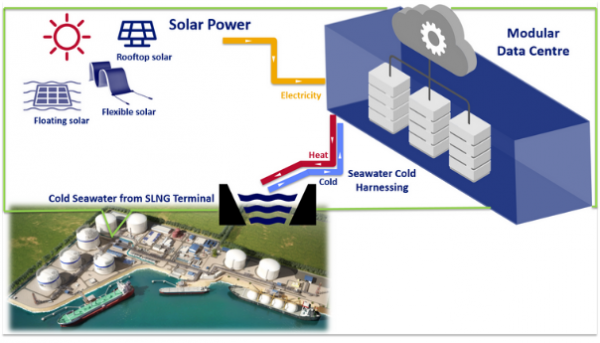
Local organisations collaborate to develop proof-of-value for first-of-its-kind green modular data centre system
May 11, 2021Singapore LNG Corporation Pte Ltd (SLNG), the National Supercomputing Centre (NSCC) Singapore, the National University of Singapore (NUS) and Surbana Jurong (SJ) have signed a Memorandum of Understanding (MOU), to collaboratively explore the development of a Proof-of-Value (POV) for a Green Modular Data Centre System, which would be the first-of-its-kind in Singapore, if proven feasible. The collaboration is in line with the global search for sustainable solutions to meet the growing demands for data centre rack space, as Singapore accelerates its digital transformation. Find out more in the Media Release.
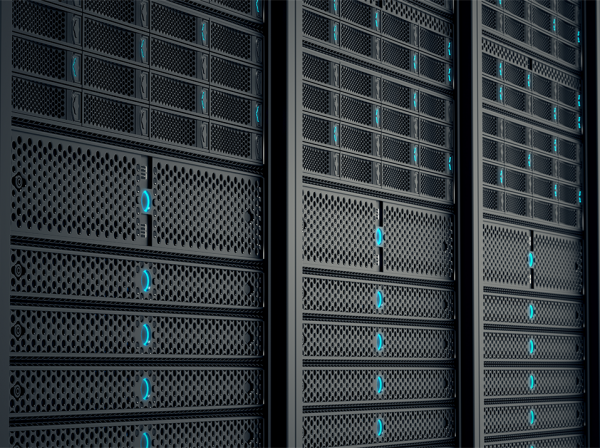
Singapore’s newest national supercomputer on track to meet future smart nation and research needs
April 28, 2021The National Supercomputing Centre (NSCC) Singapore has awarded the tender for the development of the next generation national supercomputer system plus upgrades to the national storage and research network infrastructure. The new system is expected to provide up to 10 Petaflops (10 PFLOPS) of computing capacity and is eight times more powerful than the current supercomputer. The new supercomputer is the first in a series of systems that will form the backbone of the nation’s future supercomputing resources which will support research in areas like climate change, biomedical science and smart nation activities. Find out more in the Media Release.
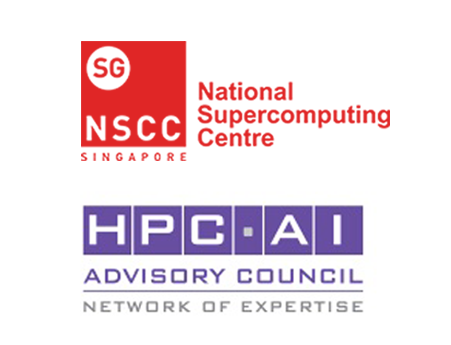
SCAsia 21 Kicks-off Student Team Entries for HPCAIAC and NSCC Singapore’s 4th Annual APAC HPC-AI Competition
March 2, 2021The HPC-AI Advisory Council (HPCAIAC) and National Supercomputing Centre (NSCC) Singapore today announced the immediate opening and acceptance of student team proposals for entry consideration in the jointly organized and hosted 2021 APAC HPC-AI Competition. Focused on showcasing the region’s top technical institutions and colleges, submissions for the 4th annual competition are being accepted through the end of April and open to teams across APAC comprised of currently enrolled undergraduate, upper level and advanced degree students skilled in state-of-the-art high performance computing (HPC) and artificial intelligence (AI).
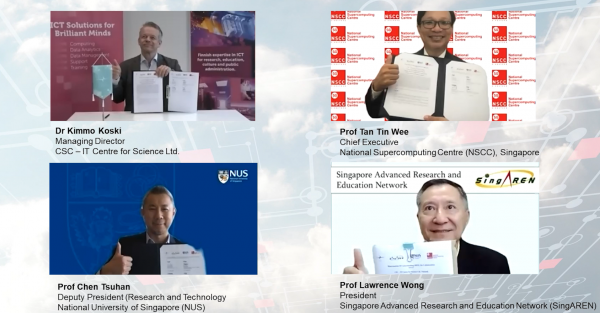
Cooperation is key in addressing future global challenges
March 2, 2021An MOU that was signed between Singapore entities and Finland’s CSC at the SCA21 conference is a reflection of the ongoing collaborative spirit in the HPC community. The MOU was announced by Dr Vivian Balakrishnan, Minister for Foreign Affairs and Minister-in-Charge of the Smart Nation Initiative at the Opening Ceremony of the SCA21 virtual conference, which adopted the theme “Supercomputing in the New Norm – Adapting to COVID-19 and beyond”. Find out more in the Media Release.
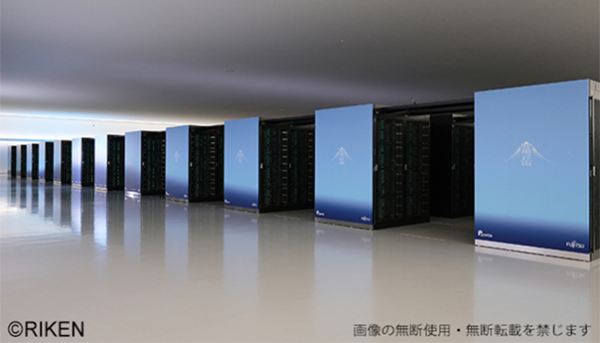
Singapore researchers plug in to world’s fastest supercomputer
November 30, 2020A new collaboration between Japan’s RIKEN Center for Computational Science (R-CCS), Research Organization for Information Science and Technology (RIST) and NSCC, will allow Singapore scientists to directly tap on the HPC resources of Japan’s Fugaku supercomputer to do ground breaking research, enhance educational activities and develop talent in high performance computing (HPC). Find out more in the Press Release.